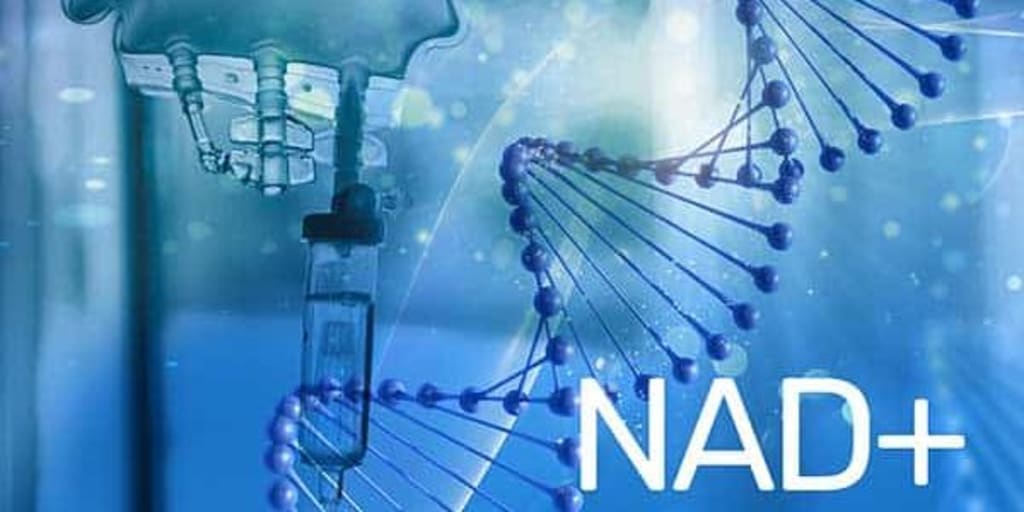Pros and Cons of NAD+ Therapy
anti-aging and wellness

As we age, NAD+ levels naturally decline, leading to a variety of age-related issues. NAD+ therapy aims to replenish these levels, offering potential benefits for health and longevity. However, like any medical treatment, NAD+ therapy has its pros and cons.
So, if you’ve been considering ozone therapy in Dubai, we’d recommend NAD+ therapy as it has emerged as a promising treatment in the field of anti-aging and wellness.
Pros of NAD+ Therapy
1. Enhanced Cellular Energy Production
NAD+ is essential for the production of adenosine triphosphate (ATP), the primary energy carrier in cells. By boosting NAD+ levels, the body can produce more ATP, leading to increased cellular energy. This can result in improved physical endurance, reduced fatigue, and overall enhanced vitality.
2. Improved Cognitive Function
One of the most promising aspects of NAD+ therapy is its potential to improve cognitive function. NAD+ is involved in the repair of DNA and the regulation of gene expression, processes that are critical for brain health.
Studies have shown that NAD+ therapy may help enhance memory, focus, and mental clarity, potentially offering benefits for conditions such as Alzheimer's disease and other forms of dementia.
3. Support for Mitochondrial Health
Mitochondria, often referred to as the powerhouses of the cell, rely on NAD+ for proper function. As NAD+ levels decline with age, mitochondrial efficiency decreases, leading to reduced energy production and increased oxidative stress.
NAD+ therapy can help maintain mitochondrial function, thereby supporting overall cellular health and longevity.
4. DNA Repair and Longevity
NAD+ plays a vital role in DNA repair processes. By replenishing NAD+ levels, the body can more effectively repair damaged DNA, which is a key factor in aging and the development of age-related diseases.
This has led to the idea that NAD+ therapy could potentially extend lifespan and promote healthy aging.
5. Reduction of Inflammation
Chronic inflammation is a common issue associated with aging and various diseases. NAD+ has been shown to have anti-inflammatory properties, helping to reduce inflammation at the cellular level. This can result in a lower risk of chronic diseases such as heart disease, diabetes, and certain types of cancer.
6. Potential for Addiction Treatment
NAD+ therapy has been explored as a treatment for addiction. It is believed to help restore brain function and reduce cravings for substances such as alcohol and opioids.
While more research is needed, early results suggest that NAD+ therapy could be a valuable tool in addiction recovery programs.
Cons of NAD+ Therapy
1. Limited Research and Evidence
While the potential benefits of NAD+ therapy are exciting, the scientific evidence supporting its efficacy is still limited.
Many of the studies conducted so far have been small or animal-based, and larger, more comprehensive human trials are needed to fully understand the effects and potential risks of NAD+ therapy.
2. Potential Side Effects
As with any medical treatment, NAD+ therapy can come with side effects. Some individuals may experience mild to moderate side effects such as nausea, fatigue, headaches, or flu-like symptoms.
In rare cases, more severe reactions can occur. It is important to consult with a healthcare provider before starting NAD+ therapy to ensure it is safe and appropriate for the individual’s health condition.
4. Lack of Standardization
The administration of NAD+ therapy can vary significantly between providers. There is currently no standardized protocol for dosage, frequency, or method of administration. This lack of standardization can lead to inconsistent results and makes it difficult to compare the outcomes of different studies and treatments.
5. Accessibility and Availability
NAD+ therapy is not widely available, particularly outside of major urban centers. This can limit access for individuals living in more remote or rural areas.
Additionally, not all healthcare providers are familiar with NAD+ therapy, which can make it challenging for patients to find qualified practitioners.
Wrap Up
In all, NAD+ therapy offers a range of potential benefits. However, it also comes with several drawbacks. As with any medical treatment, it is essential for individuals to weigh the pros and cons carefully and consult with a healthcare provider to determine if NAD+ therapy is appropriate for their specific health needs.
About the Creator
Lifespan
At Lifespan, we are more than just a medical facility; we are your dedicated partner in precision health, wellness, and athletic excellence.
Enjoyed the story? Support the Creator.
Subscribe for free to receive all their stories in your feed. You could also pledge your support or give them a one-off tip, letting them know you appreciate their work.






Comments
There are no comments for this story
Be the first to respond and start the conversation.